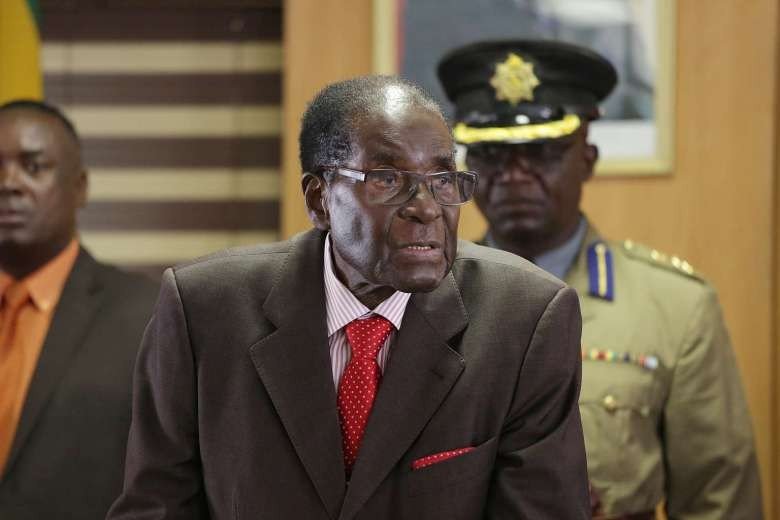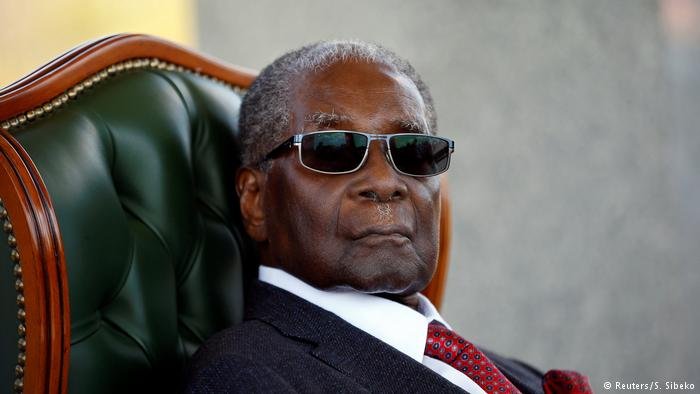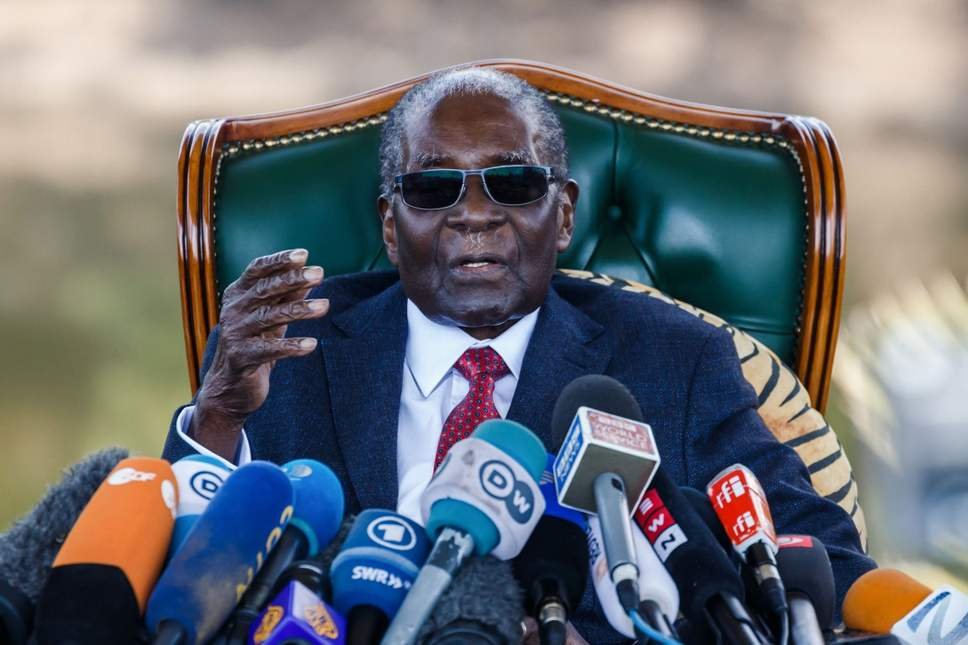For the vast majority of Zimbabweans we have known no other political leader other than Robert Gabriel Mugabe. He was born in 1924 and became the effective leader of Zanu whilst in Prison in Rhodesia in the early 70’s and Prime Minister in 1980 and President in 1990.

By Eddie Cross
For the past 37 years he has been at the center of power in this country and nothing has really happened without his say so or approval. Even at the age of 93, he is a powerful figure, more feared than loved and still able to basically give direction as to what happens here on a daily basis.
For some time however, his grip has been slipping and as a result, the many centers of power here – the Joint Operations Command, the Office of the President and Cabinet, and the Cabinet plus others, have found themselves competing for control and influence. Add to this mix the powerful lobbies in the Party itself and it is no wonder that we find ourselves paralysed by inconsistency and indecision. While this has been happening, the President’s wife (she is half his age) has been trying to claw her way to the top of the pile and now recognises that this is essential if she wants to survive the fall out once Mugabe goes.
As the “Old Man’s” health has declined and he has become increasingly frail, so the frenzy at the top in this country has intensified. Alliances emerge and collapse and new forces rise and fade away. It now generally accepted that we are in a post Mugabe era and all attention is focused on who will win the struggle to take over the national reins of power. The parallels with the last three years of the life of Mau in China are very close. In his last years, Chairman Mau declined rapidly, forgetting who he was talking to and failing to recognise old colleagues. He also had a young and ambitious wife who had aspirations and there were many factions and centers of power in Beijing.
The potential for chaos in such a situation is very great, just as it is here, and the ballast in the bottom of the national boat are the very instruments that the aging Emperor had used to maintain his grip on power through all the years that he had been in control. In the case of China, the young revolutionaries behind the Red Revolution and their reign of terror were a powerful force and could only be controlled by the Red Army so that when finally, the Chairman died, it was the Army that stepped into the breach and took control. No democracy was involved, they simply went to a prison outside the Capital and brought a largely unknown figure out of Prison and installed him as the new Chairman of the Chinese Communist Party and therefore the leader of “Ancient Kingdom”.
The fate of the ambitious wife and her close supporters was sealed from the start. One by one her supporters were assassinated and she was locked up in a Prison and died two years later. The new leader took China in a completely different direction and the rest is history.
Here a very similar situation exists and when finally, the days of President Mugabe sets, new leadership will take over. This process, as it was in the Beijing, will be determined by hard power – probably military in character and not by democratic means. I do not give Grace Mugabe any hope of being part of the new dawn.
For all of us who are interested spectators, the real issue is not so much what will go on behind the closed doors of the Palace or the bedroom in the Palace, but what sort of regime will emerge and how will they handle the post Mugabe era.
We have lived under a quasi military dictatorship, more or less the same as in China, for the past 30 years, this has been gradually established and is now firmly in control of almost all aspects of life here. Up to 2000, we were virtually a one party state and had almost no individual freedoms, the media was totally controlled and opposition activity virtually banned. The MDC was an upstart movement that the authorities thought could never challenge the power and control of the Zanu PF Regime. The shock victory in 2000 and the subsequent successive electoral victories in 2002 and 2008 shook the regime to the core and unleashed a Soviet style “total onslaught” on the MDC and its allies. This allowed the regime to survive but they could not hold the line either on opposition activity or individual freedoms. As a result Zimbabwe has become a much more liberal and free society whilst the regime under Mugabe has remained firmly in power through the Military Junta.
The first problem in a post Mugabe era is therefore what to do with this autocratic and powerful system of State capture and control. While they will determine who comes to power after Mugabe and will guarantee stability in the transition, they will not be able to fix the problems he will leave behind. Under Mugabe’s leadership Zimbabwe has become a pariah State, isolated and much reduced in international influence, even in Africa. He leaves behind an impoverished nation that cannot even feed itself, where 90 per cent of the adult population is unemployed and the rest are almost totally dependent on the State.
The dilemma for these power brokers is that if they allow reform to the electoral system and do not use the systems of control that have kept them in power for the past 37 years, they will not only be removed from power but humiliated. Clearly they are not going to voluntarily go down that route unless they are faced with the kind of situation that confronted the regimes in East Germany and Rumania just prior to the collapse of those regimes.
I do not think that such conditions exist in Zimbabwe and so a great deal will depend on how the hard power brokers in Zimbabwe handle the transition and its aftermath. If they follow the Chinese example then we might see a similar outcome, the alternative is the North Korean model of an isolated pariah State with few friends and dependent on handouts and whatever they can scrounge from the rubbish dumps of international relations.
We in the MDC have quite a good understanding of those with hard power connections – we were in the Government of National Unity with them from 2009 to 2013 and we sit with them in Parliament on a regular basis. One faction or the other is going to take over here and I think it is more likely to be the faction that will try to bring sanity to our affairs. However I do not see this as being via a democratic process and this will create serious problems for the new regime which can only be overcome if they seek and secure a deal with both the domestic democratic forces and the International Community.
Returning Zimbabwe to democracy, respect for the rule of law and all human and political rights was never going to be easy. I think many do not recognise sufficiently just how much has been achieved since we first took up the struggle in 2000. We in the democratic movement must acknowledge that much remains to do and that this was never going to be a sprint – it was always going to be a marathon. In a marathon the victory comes to those who can stay in the race and in the end it is sheer determination and courage that carries us over the finish line.







